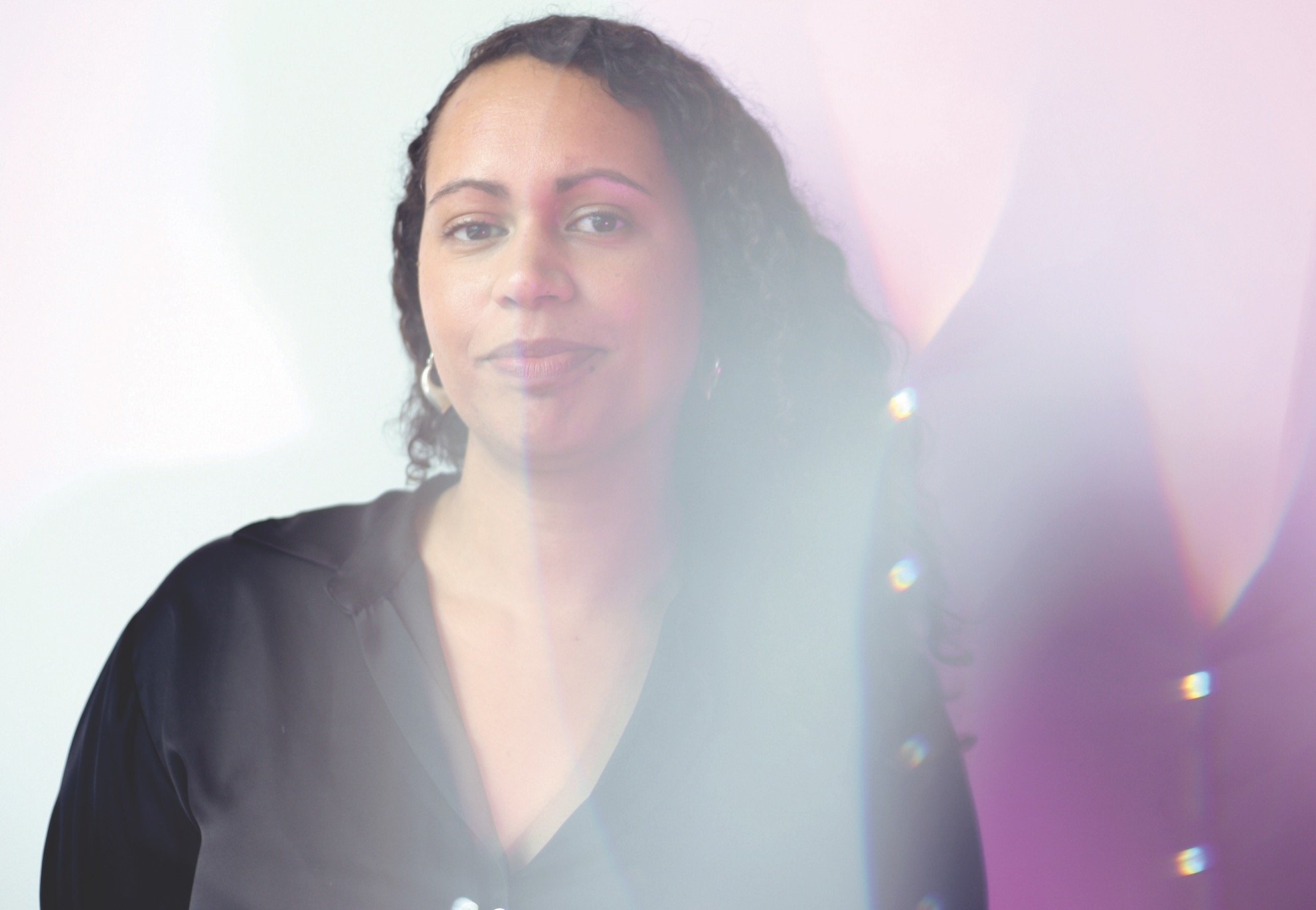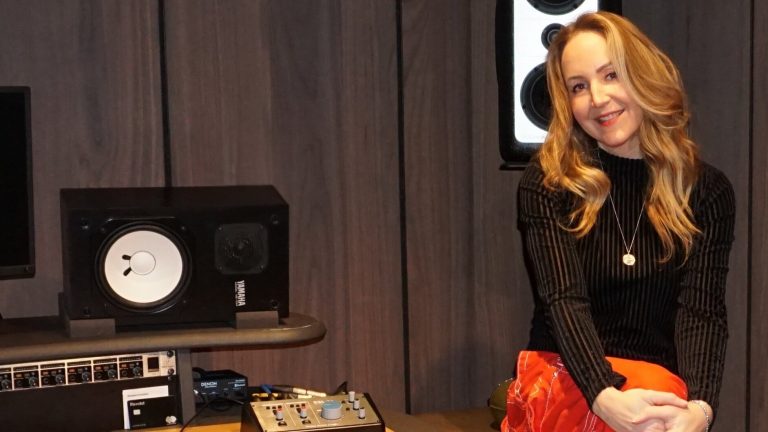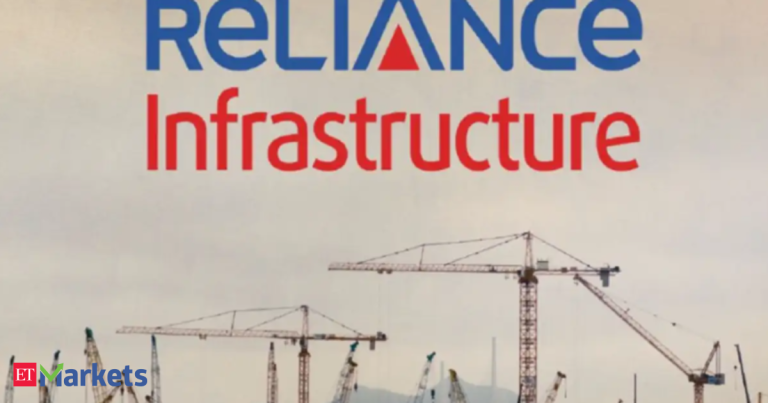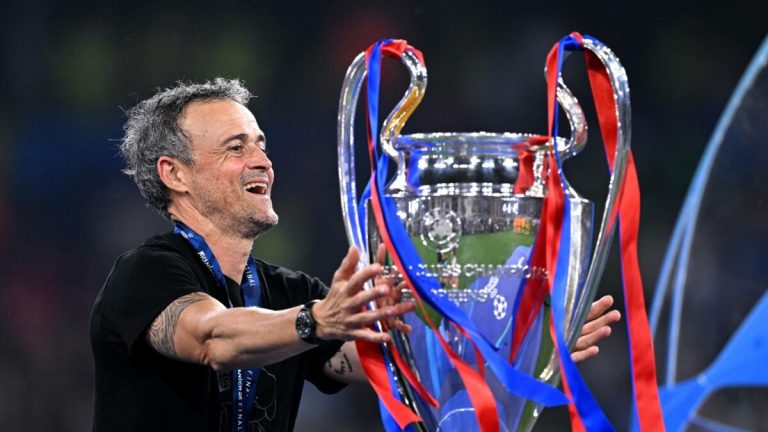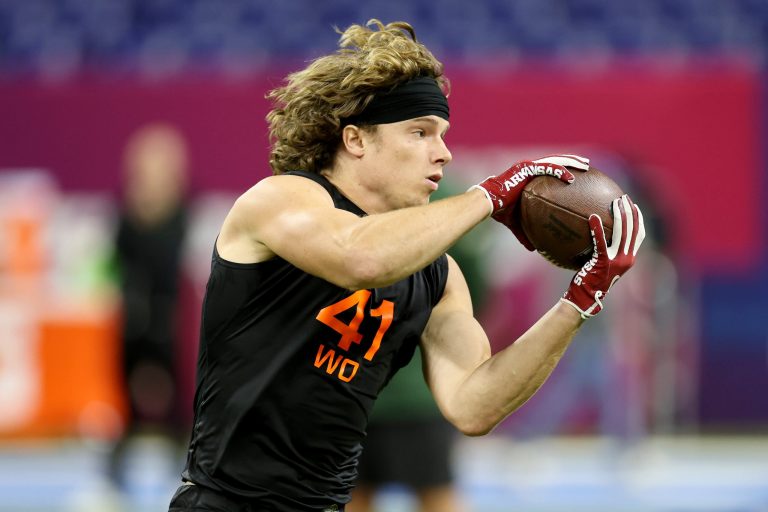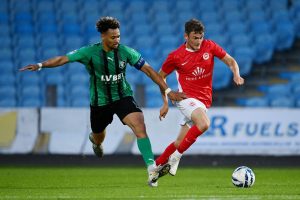Having studied journalism at university, Kay Wrate saw the word ‘research’ in an ad for a job at PRS. Whilst she continued to look for a writing job, she figured this alternative role would at least be somewhere she could utilise her newly acquired skillset. It involves research, right, like journalism?
“Unfortunately, when I went for the interview, they said, nope, it’s not research-related; it’s just data entry. I thought, you know what, I’ll give it a try…”
It worked out pretty well. Nearly two decades later Wrate is MD of the publishing division at legendary UK indie Warp Records which has, over the years, been home to artists such as Aphex Twin, Autechre, Boards of Canada, Squarepusher, Brian Eno, Broadcast and Maximo Park. Wrate herself currently works with a roster that includes Dry Cleaning, Jessica Winter, Kelsey Lu, Loraine James, Slowdive and Speakers Corner Quartet.
She was born and raised in London – “My parents met in Chelsea in the seventies, the era of punk, ska and reggae”. It was an environment which bred an eclectic taste in music and a passionate curiosity for culture.
She recalls: “Dad was a London cabbie and mum always worked in retail. They always said to me, ‘Be ambitious; the world can be your oyster’. We were really lucky in that sense.
“I think they had always been told they wouldn’t amount to anything. They both left a school at 13. They were so frustrated and they just didn’t want my brother and me to have the same experience.
“As a teenager I always felt a bit out of sorts in a way, because I was very into guitar bands. I listened to everything, but I think I was always drawn to more alternative music, I guess. US stuff, like Nirvana, but I was also into Britpop – I loved Blur, Elastica, Lush, Skunk Anansie, that type of thing.
“I related to it because I could go to Camden and see these people on the streets, or I could go get on a bus and go to see shows at the Brixton Academy.”
So an entry-level job at PRS, whilst taking her further away from her planned career, journalism, took her into the orbit (albeit as an outlying satellite initially) of her first love: music.
For a while, she tried to combine the two. “About a year in to working at PRS, me and a group of friends started a magazine called Volume. We weren’t getting any breaks and we wanted to promote the people around us – all the artists, the photographers etc. So I had something super creative, but also something really practical to pay my bills, pay my rent, do all of that stuff.
“I applied for so many editorial assistant jobs at that time and I just couldn’t get a foot in the door. If there was a position available, it would be unpaid and that just wasn’t possible.
“At the same time I was learning more about music publishing. I found it really interesting and it was connected to something I loved. I was also working with an amazing crew of people. We’d go to shows together. It was a bit like school again, we were all learning and sharing knowledge.”
The march of technology, however, eventually mean that a lot of registration processes became centralised, and so Wrate’s role became redundant. To its credit, PRS “actively tried to find new jobs for all of us”.
For Wrate, this meant a move into labels, into publishing and into the upper echelons of the UK independent music sector. It is somewhere, with the odd blip, she has flourished ever since.
What was it like moving from PRS to Domino and what did you learn there?
I worked there for five years. I’m still super-close to everyone there.
It was really nice to be in-house, working with artists, having that connectivity and learning even more about the impact of publishing. It was a much more rounded role. I really got to understand contracts, I learned the artist relations side – and about A&R, which has always been amazing
at Domino.
“You knew you were at a company that had built artists’ careers; everything felt connected.”
It was a really fantastic catalogue, really broad. And it was just exciting to be in that world, being young at a music company, out at gigs two or three times a week, you knew you were at a company that had built artists’ careers; everything felt connected.
What were your ambitions at that point?
I think at that time I was really happy with what I was doing, because I was still actually working on the magazine then. I was really happy working at Domino. I loved the music I was working with. I loved the team. I was enjoying doing my side stuff.
I wasn’t thinking about A&R. I always thought in some ways I wasn’t really good enough to do that. Sometimes I’d have a few suggestions, but I always felt more comfortable on the administration side.
Why didn’t you feel good enough for A&R?
I think it felt like a lot of pressure. It felt like the whole company’s riding on these decisions. I just couldn’t help thinking it wasn’t my place. Even though that’s sort of what I was doing for the magazine – trying to find new artists and giving them a platform.
But record company A&R always felt like a lot. Also, I sort of weirdly just didn’t put two and two together. At the time the A&R was being done by freelance people, then an amazing guy called David Donald joined – plus Laurence Bell is obviously incredible.
It felt like that was enough – and I was just kind of doing my little thing on the side. I don’t know, maybe it was also to do with being young.
And then you actually took a small break from music, tell us about that.
I was starting to try and get jobs for some of the photographers and stylists who worked on the magazine. I was like a fixer, you know, putting people together.
I’d been at Domino for a while. I wasn’t not enjoying it, but I thought maybe I needed something a bit different. So I actually ended up working for an agency that looked after photographers and stylists for three months. It was definitely the worst three months of my working life.
I worked with absolute bullies. It was a very toxic environment. The photographers and stylists were lovely, but it was not for me.
In the end, I went to Universal and worked on their data team. A friend of mine left and asked if I wanted them to put me forward. I was like, ‘Absolutely! Get me outta here!’
So you’re back in music, but how did you get from there to A&R?
I did quite a short stint at Universal, and then a job came up at Warp Publishing. There’s an incredible woman called Joanna Hagger who got me in there.
I was doing the royalty side, really enjoying it, because the set-up and culture was quite similar to Domino in some senses. And then I started to say to Theo [Seffusatti], my boss, who founded Warp Publishing, ‘Maybe we should work with this person’; ‘What about this person?; ‘Have we ever thought of this?’; ‘Maybe this producer would be good for this artist’.
“In the end, Theo said, Put the spreadsheets down, let’s give it a whirl.”
In the end he said, ‘You know what, put the spreadsheets down. You keep coming to me with ideas, let’s just give it a whirl. We’ll get a new royalties person in, we’ll do a transition, and you should just get out there and give it a go.’
I’d not really heard of that many people segueing from spreadsheets to creative like that. But he took a chance on me and I’m forever grateful for that.
And then when you get into A&R, it is hard work and it’s really rewarding work, but it’s not rocket science either.
How important is it to be proactive like that in terms of career progression?
I certainly think now, as a manager myself, it’s important to have an encouraging environment, because some places definitely don’t. No manager’s ever going to get annoyed at a good idea – or even a few ideas, and one of them’s good.
I think it is really important to develop and show that you’re keen and that you’re thinking about where you’re working as a whole, looking at how the puzzle pieces fit together. It’s a confidence thing as well sometimes, I get that, but I do think coming forward will always benefit you in your development, especially if you’re working at a smaller company. It’s so crucial to have a kind of entrepreneurial spirit in that scenario, coming up with ideas in a company culture where you’ll be taken seriously. I always had at that at Warp, which I always appreciated.
Let’s talk about your progression at Warp, which has been quite remarkable…
I started more day-to-day A&R stuff on the songwriter side of things, building a network, trying to meet everyone. And then I started signing people to the publishing company alongside looking after the roster – artists and writers – that had been there for many years.
I think once I was given the chance, I showed a lot of passion. Plus I was coming up with new business ideas. Then, when Covid hit, I sort of weirdly went into overdrive because I felt like we had a real responsibility to support all of our artists through that.
We literally got a spreadsheet together of everyone on the roster and contacted them one-by-one, checking in and making sure that everyone was all right. There’s always been a community feel here, but that just emphasised it and proved that it wasn’t just something you say; it was real.

Senior management took notice, they knew I was serious about it. And so then I became Artist Liaison Manager, then Head of A&R. Then Theo told me he wanted to move to New Zealand. At that point the blood drained out of my body [laughs].
When he told me, he also said, ‘You’ve gotta step up now’. I remember thinking, no way, I’m not doing that, it’s too much pressure.
But he’d planted a thought. And then, as his plans started to come together, he and the MD of Warp Records [Kevin Fleming] said, ‘We can either look for someone, or you can step up and run the company.’
I remember I started crying. I was like, ‘I don’t think I wanna do this’. It just felt so overwhelming. But they were really encouraging, they said they’d support me and they also put support in place around me.

So we hired three people, Nadine Riezouw, General Manager, Rico Taylor-Walsh, A&R Manager US and Emily Moore, A&R in the UK – which is a lot for an indie company. But it meant that I felt super-supported. Their message was, ‘Everyone’s gonna pitch in and you’ll get to learn everything you need to know in time; we think you’re good for it.’
The end result is that we’ve got a great A&R team, we’ve got an amazing sync team, an amazing administration team – accounts, legal all of that. I would be nothing without those people, really. There’s quite a lot of us now and it just feels like everything’s come together.
“The artists were all encouraging, same with the managers. There was support across the board.”
The artists were all really encouraging as well, telling me I should do it. Same with the managers. There was support across the board, which
was lovely.
I’m still learning lots, constantly putting ideas forward, thinking about how we’re developing in different territories, how we’re developing the team, what we need in each area, trying to keep ahead of trends, knowing the right people in the right places – building a community, internally and externally.
Sometimes it’s just randomly asking people for a coffee. I’ve done that so much – and you never know what will come of it. When you do, you find people are so responsive and curious.
You are a woman of colour sitting at the top of a company with huge responsibility – and that is rare. How important is it for you to have that voice and how are you using that voice?
I think my main goal is just to share and be open with anyone who’s interested in heading in that type of direction.
I’m so happy to sit with people and break things down. Doing panels, meeting up with people one-on-one… Whatever will help to smash walls down, or get rid of that ‘It’s not for me’ feeling.
It might be by accident, but most of my UK team are women. We have a supportive environment, we’re very encouraging, we talk about their careers not just their jobs, we offer mentoring; that side of things is super important to me.
Can I ask you about that mentoring; it’s quite structured, isn’t it?
Yeah, there’s a company called Future Bubblers and I was approached by them to mentor artists. They’re such an amazing team.
And over the years, I’ve also done some work with PRS Foundation, which was a real honour for me.
I think people get worried about how much time it’s gonna take, but it’s often just a couple of hours out of your month. You can make the time, honestly, that’s not a reason not to do it. You get such lovely friendships out of it as well.
Where do you see your career going from here?
I think publishing has changed so much over the past 10 years. It’s become a lot more creative.
We are working with people across songwriting, film scores, commission work, sync, and just general, really practical day-to-day support. I feel really passionate about building careers that are sustainable.

This interview is taken from a brilliant podcast series, Did Ya Know?, which tells the often unheard stories of key figures in the British music industry, focusing initially on pioneering executives of colour. The team behind the pod includes Stellar Songs co-founder Danny D and Decisive Management co-founder Adrian Sykes. Music Business Worldwide is proud to be partners and supporters of Did Ya Know? You can listen to it wherever you find your favourite podcasts.
Music Business Worldwide
